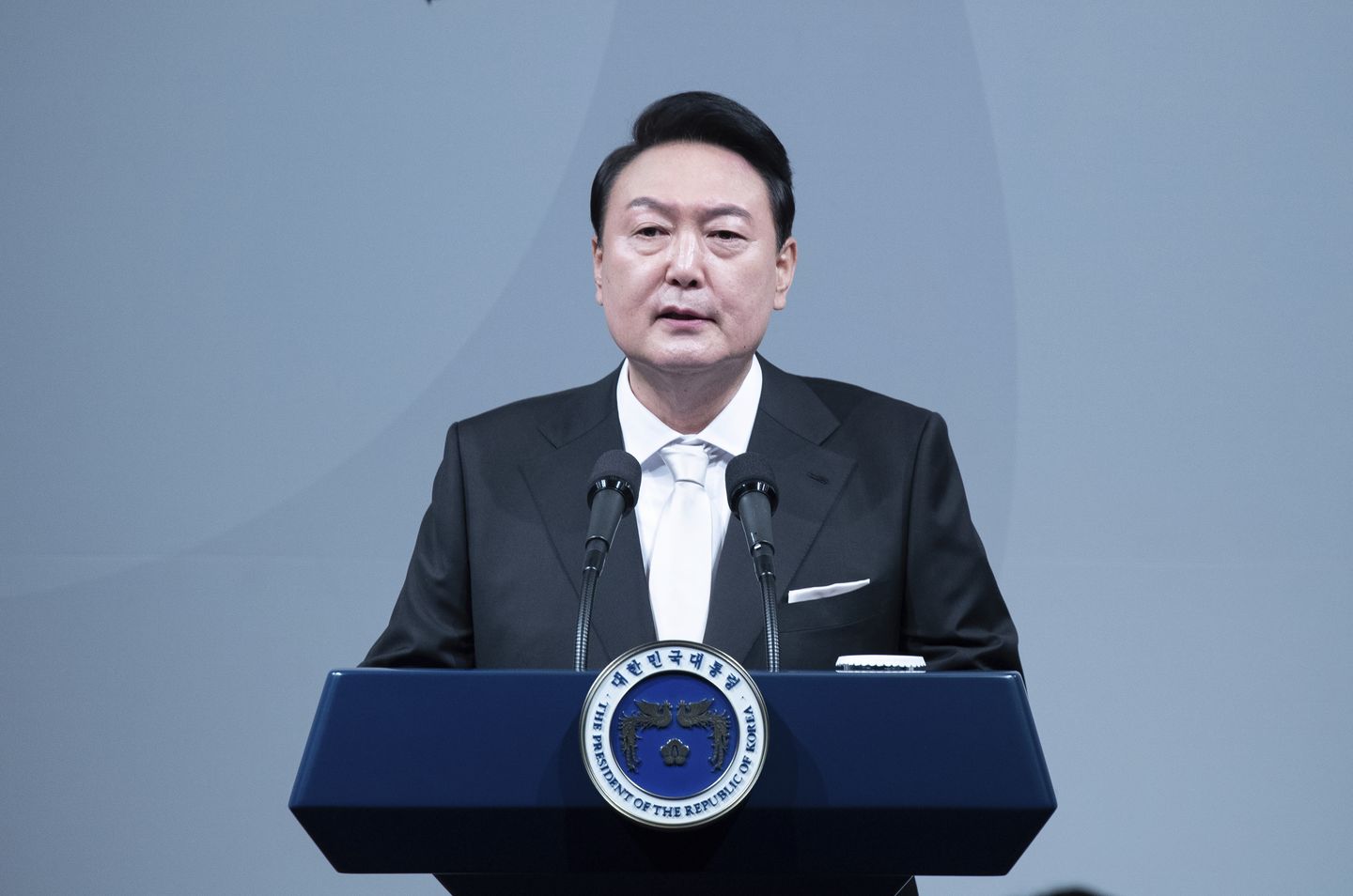

South Korea’s new president vowed to help deliver an “audacious” economic aid package for North Korea if Pyongyang agrees to start dismantling its nuclear programs, offering an olive branch as he took office that the North is unlikely to accept.
Conservative Yoon Suk Yeol made the remarks during his inauguration speech at a ceremony in Seoul, succeeding liberal President Moon Jae-in and likely about to face an immediate challenge from the regime of North Korean leader Kim Jong Un on the divided peninsula.
Pyongyang’s nuclear weapons program is a threat not only to South Korea’s security but to every other country in the region, Mr. Yoon, a onetime prosecutor who has never held elective office, said as he began a five-year single term in office.
“The door to dialogue will remain open so that we can peacefully resolve this threat,” he said. “North Korea’s denuclearization will greatly contribute to bringing lasting peace and prosperity on the Korean Peninsula and beyond.”
“If North Korea genuinely embarks on a process to complete denuclearization, we are prepared to work with the international community to present an audacious plan that will vastly strengthen North Korea’s economy and improve the quality of life for its people,” he added. He offered no details in his inaugural remarks on the plan he had in mind.
North Korea, which has resumed an accelerated schedule of long-range missile tests this year following the breakdown of direct diplomacy with the U.S. under President Trump, is unlikely to reciprocate. The North’s Mr. Kim recently warned that his regime would consider preemptive nuclear launches if he felt the North’s essential national interests were being threatened and has refused Biden administration offers for a resumption of direct talks.
Mr. Yoon, 61, acknowledged that South Korea, like other countries, faces challenges on a number of fronts beyond North Korea, including the COVID-19 pandemic, fast-evolving trade regimes, rising inequality and finding its footing in the rivalry between China, Seoul’s biggest trading partner, and the United States, South Korea’s main security guarantor. President Biden is expected to meet the new South Korean president in Seoul next week as part of a previously planned Asian diplomatic tour. Mr. Yoon takes office after narrowly defeating Democratic party nominee Lee Jae-myung in the March 9 presidential election.
Although Mr. Yoon said in the campaign he wanted to tighten security relations with Washington, Chinese Foreign Ministry spokesperson Zhao Lijian said Tuesday that Beijing is ready to work with the new South Korean government, according to the Associated Press. Chinese Vice President Wang Qishan was in Seoul Tuesday for Mr. Yoon’s inauguration ceremony.
Closer to home, Seoul also is experiencing record-low growth, rising unemployment, and an “ever-widening gap” in wages and polarization within society.
“Internal strife and discord are deepening, which has led many of our fellow citizens to lose their sense of community and belonging,” Mr. Yoon declared. “The political process which has the responsibility to address and resolve these issues has failed due to a crisis in democracy.”
Korea is the tenth-largest economy in the world and with that material success brings responsibility. It is time for Seoul to “take on a greater role befitting our stature as a global leader,” said Mr. Yoon, calling on South Korea to promote universal values and international norms based on freedom and respect for rights.
“We must take on an even greater role in expanding freedom and human rights not just for ourselves but also for others,” he said. “The international community expects us to do so [and] we must answer that call.”
